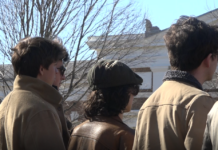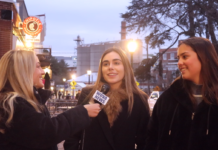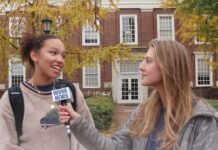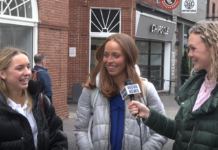On February 14, 2018, representatives from the Deans Working Group and a number of students met to discuss appropriate policy responses to the events of August 11th and 12th. In the rotunda, the Deans Working Group representatives discussed implications of proposed policy changes, and sought candid responses from those the proposed policy would impact the most – students of the University of Virginia. The overview of the suggested policy began with the acknowledgement that although there is a constitutional obligation to allow free speech, policies can be made to deal with the time, place, and manner of this speech, which are exemplified at many private and even public schools around the country.
Then, the changes to the policy were discussed thoroughly: there would be a shift from the mere two rules at present (no amplified sound, and no disruption of school activities), to a number of different policy adaptations relevant to the access unaffiliated persons have to gather to speak or protest on grounds. It was stressed that there would be no changes for those affiliated with the school (students, staff, and faculty). They presented extreme policy change suggestions, but only after recognizing the distinctly vast spectrum of changes being discussed. The purpose of the discussion was to find a middle ground, and to receive student feedback on whether said policy seemed as such. The (abbreviated for length) proposed policy is as follows:
University facilities may be made available on a first come, first serve basis (with priority given to students over unaffiliated persons), an unaffiliated person(s) needing to be sponsored by a student group/organization/department to speak in a facility. Unaffiliated persons desiring to engage in public speaking or the distribution of literature outdoors may do so in designated locations. Persons wishing to do so must contact the school’s event planning services at least 7 days in advance. The Event Planning Services will have the right to only allow reservations for two-hour blocks between 9am and 5pm, Monday through Friday, and only for parties up to 25 people.
In essence, an unaffiliated group intending to come protest on Grounds would have to call at least a week in advance. Said group should not consist of more than 25 people, and can only come on Grounds for a 2-hour period on a weekday between 9 and 5, in a specific location designated by the school. After reviewing the policy plan, the event turned into a student-led discussion to discuss different implications of the policy, as well as personal opinions revolving around it.
The feedback session was not meant to be a binary policy or no policy vote, but rather an open-ended dialogue. Students’ opinions exceedingly varied, but all contained insight and acuity: Many believed that this policy was a necessary response to prevent something like the events of August from ever being repeated, and felt that the proposed policy would allow for easier monitoring of unaffiliated persons without hindering any of the rights of the students. Other students believed that the policy was complicated and not something that could ever be effectively regulated. One student even claimed that the extreme measures were inherently against what the University stood for: being a historical place open for the education of all people, no matter their status as students.
The majority of students ended up falling in between the current and proposed policy: they felt the current policy was not enough, but that the proposed policy was farfetched and unnecessarily extreme. The proposed policy also had a great deal of implication issues, as was pointed out by many students. Are they restricting or permitting specific locations? Is it fair to working people to only allow for weekdays/limited hours – nonspecifics that could be used to discriminate? What constitutes protest? Will the policy cover general assembly, petitions and silent protest (these were not acknowledged but are first amendment rights)? What enforcement mechanisms will be utilized? Will pop-up counter protests be allowed? What if unaffiliated persons want to protest alongside students?
These discerning questions will certainly cause some rephrasing within the proposed policy. I had only heard of the proposed policy at this event, but as exemplified by the profound thoughts of the students present, it is something I believe we all need to be talking more about.
















